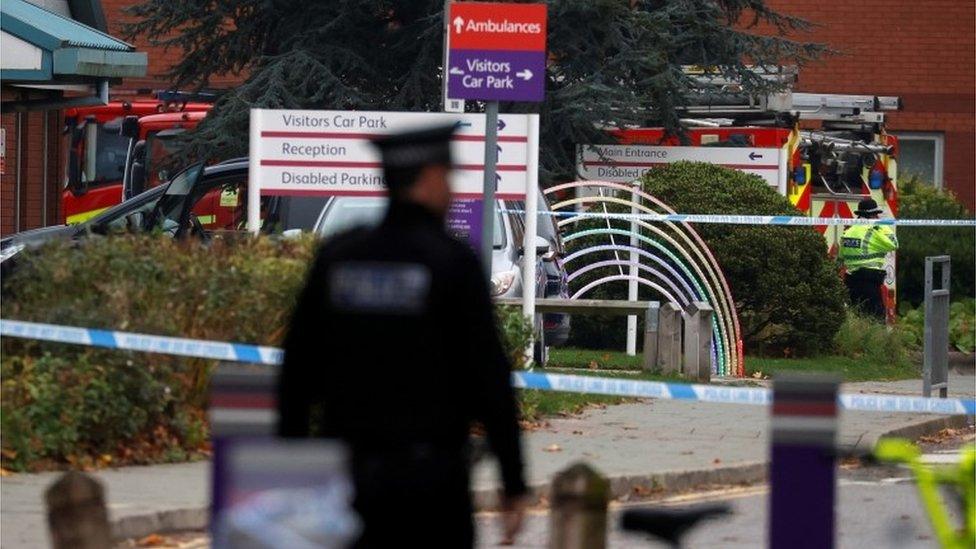Liverpool blast: Death threat at church linked to bomber
- Published
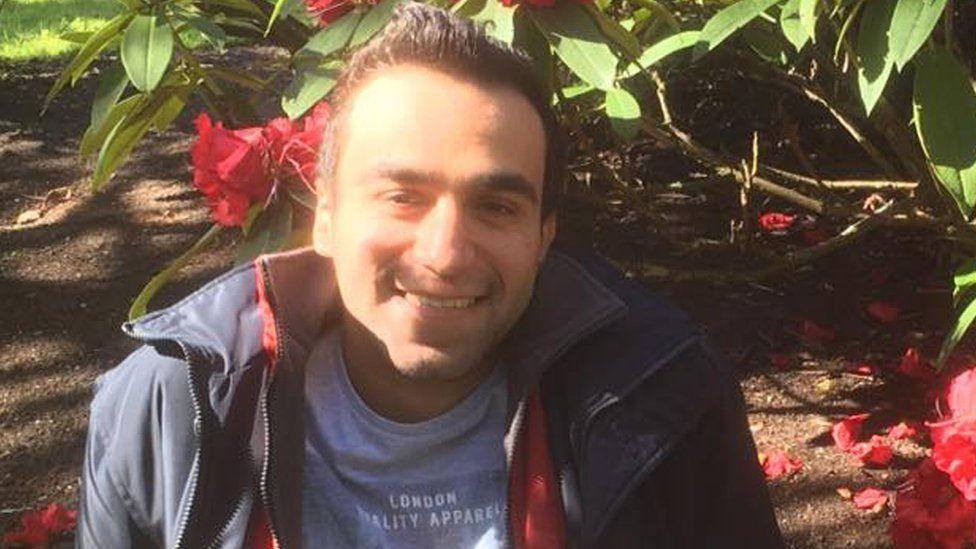
Emad Al Swealmeen began seeking to convert to Christianity in August 2015
A Christian convert at a church connected with the Liverpool bomber has received a death threat in the wake of the attack, a vicar has said.
Emad Al Swealmeen, who died in a terror attack on Liverpool Women's Hospital on 14 November, had previously attended St Philemon's Church in Toxteth.
Rev Brian Elfick said his congregation included several asylum seekers, one of whom had received a death threat.
He said it had left them "fearful of coming to church".
The investigation into Al Swealmeen, who was a passenger in a taxi when his homemade device exploded outside the hospital shortly before 11:00 GMT on Remembrance Sunday, has found that he began seeking to convert to Christianity and adopted a new name, Enzo Almeni, as part of the conversion in August 2015.
He had been refused asylum and further appeals at that point, though he renewed his immigration appeal under his alternative name in January this year.
His submissions were under review at the time of his death.
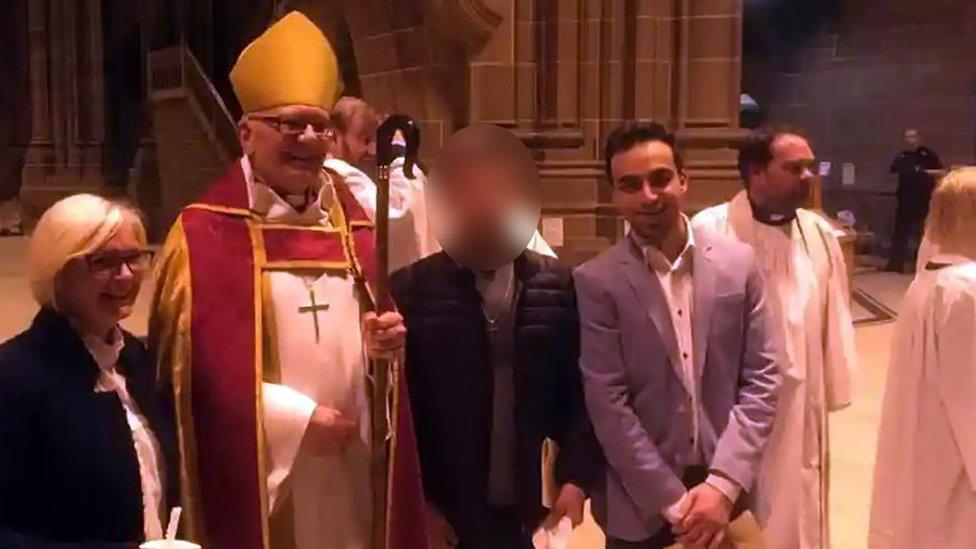
Emad Al Swealmeen (on right in light grey jacket) during a service at Liverpool's Anglican Cathedral
Mr Elfick said the bombing "will have affected our church in a number of ways" and that "those from the Middle East feel much more distrusted and unwelcome".
"One member of our church family received a death threat… despite having residency," he said.
"Because St Philemon's has a number of asylum seekers, some on the fringes of church life are fearful of coming to church, but we expect that fear to pass."
He said Al Swealmeen's attendance at his church was not "habitual", but many of the congregation "will have met him at some point" through former church members Malcolm and Elizabeth Hitchcott, who had attended when the bomber was living with them in 2017.
Mr Hitchcott has said he believed Al Swealmeen was a "genuine Christian".
'Won't allow hate'
The Church of England said it was not aware of any link between conversion and asylum system abuse after it emerged Al Swealmeen had become a Christian.
Mr Elfick said many of St Philemon's members were asylum seekers and ex-asylum seekers who had converted from other religions and his church had written letters of support for asylum applications.
He said he did not "facilitate any 'gaming of the system'" and was "about discipling people, not coaching them through a process".
However, he said he recognised his "limits", adding: "We cannot look into another person's heart."
A spokesman for Liverpool Cathedral confirmed that the bomber had been baptised in 2015 and confirmed there in 2017, but had lost contact with the cathedral the following year.
Meanwhile at the scene of the bombing, Merseyside Police said investigators have closed the cordon after a "painstaking examination".
The force said it had since opened a mobile police station at the hospital to "reassure staff and the public".
Assistant Ch Con Jon Roy said: "The closure of the scene and the removal of the cordon will mark an important step in its return to normality."
Searches by Counter Terrorism Police North West remain ongoing at Rutland Avenue in Sefton Park, added the force.
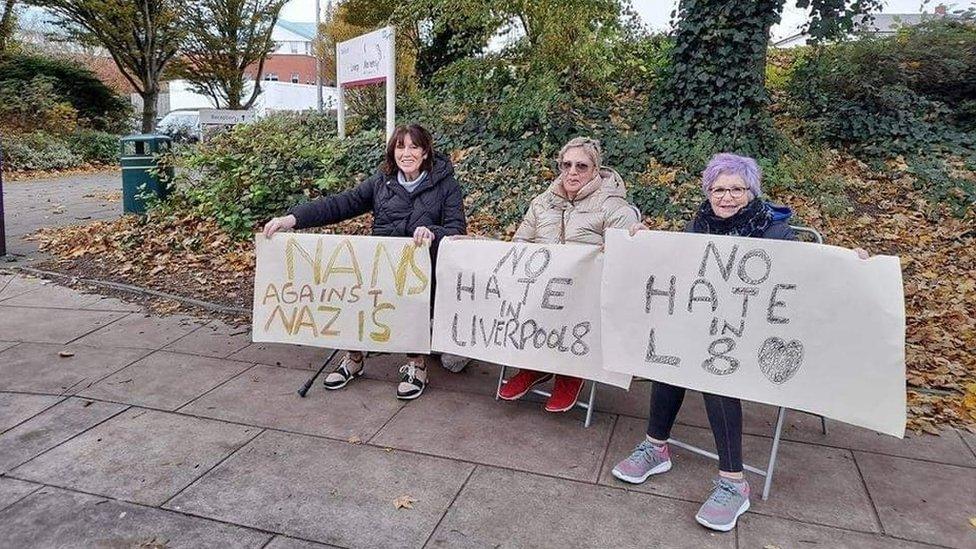
The trio of grandmothers staged their protest at the site on Thursday
Liverpool's religious and civic leaders have called for unity following reports of an increase in anti-Muslim abuse.
Three grandmothers staged an anti-racism protest near the hospital on Thursday after several far-right protesters were filmed at the site.
Pat Harvey, 71, said the local community "won't allow hate or racism in our city, and certainly not in Liverpool 8, one of the most multicultural areas we have".
"It was outrageous," she said.
"As if it's not enough that the patients and staff went through the trauma of the explosion, they then had to listen to those remarks outside."

Why not follow BBC North West on Facebook, external, Twitter, external and Instagram, external? You can also send story ideas to northwest.newsonline@bbc.co.uk
Related topics
- Published21 November 2021
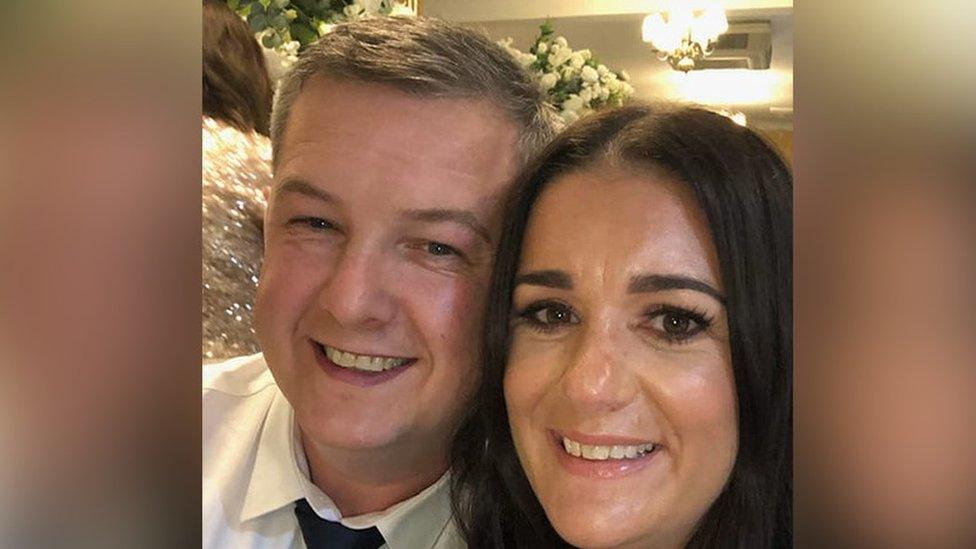
- Published21 November 2021
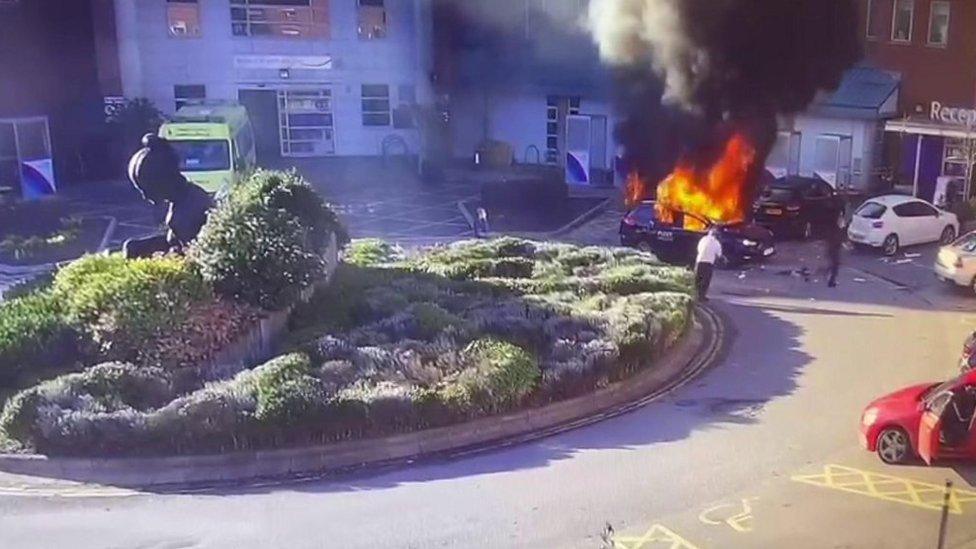
- Published18 November 2021
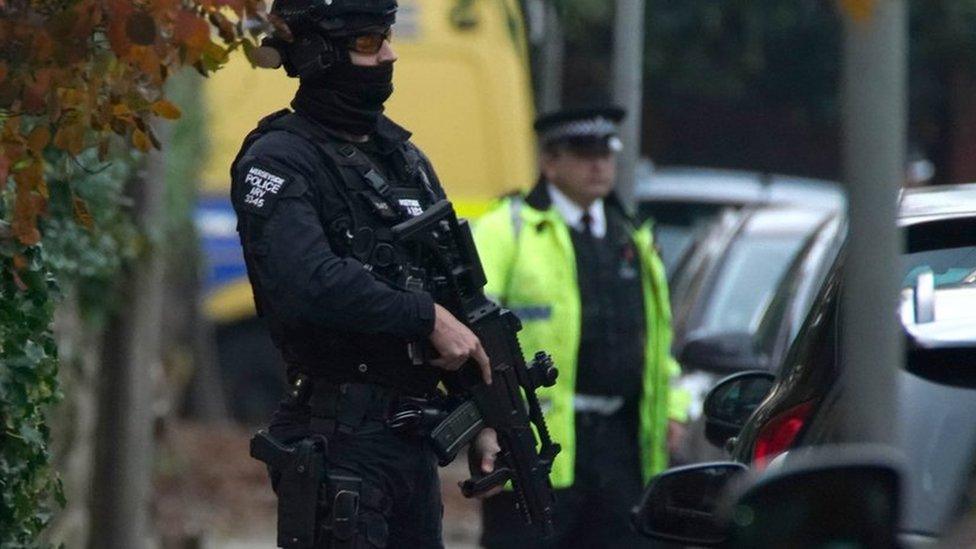
- Published19 November 2021

- Published18 November 2021

- Published17 November 2021

- Published17 November 2021
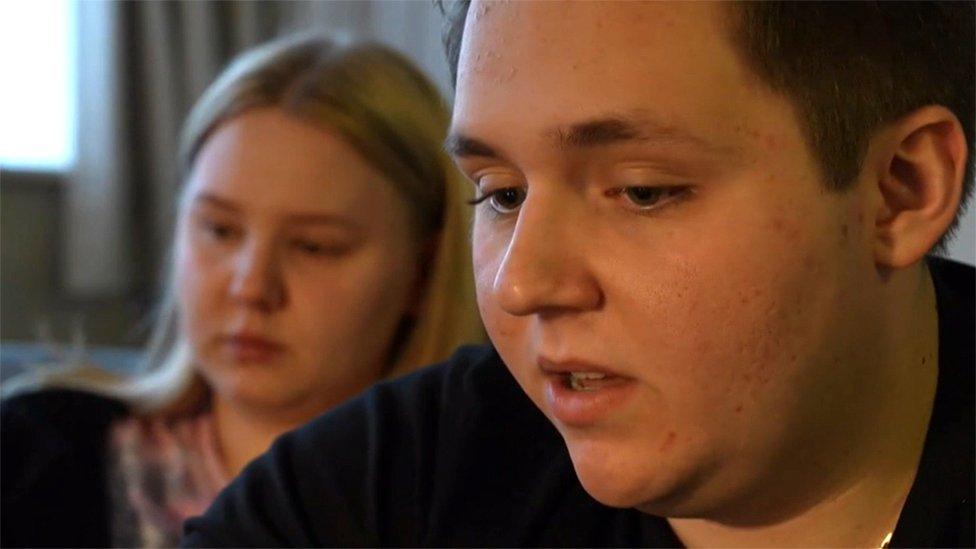
- Published17 November 2021

- Published16 November 2021
